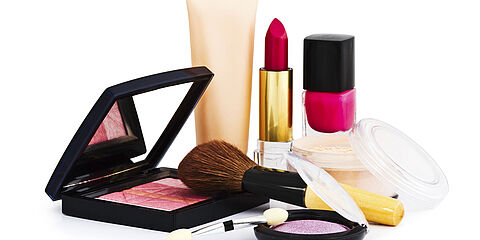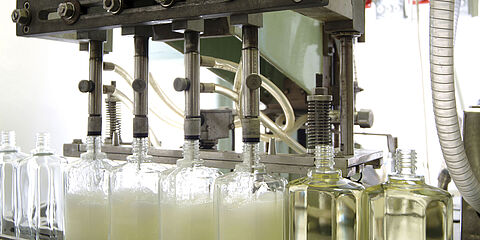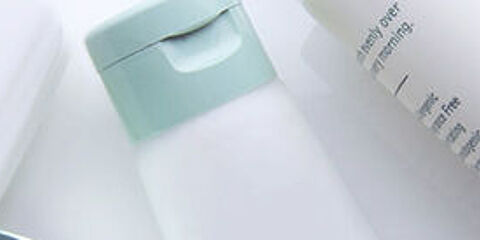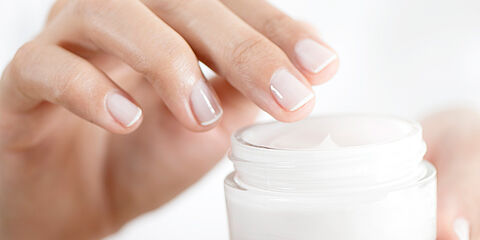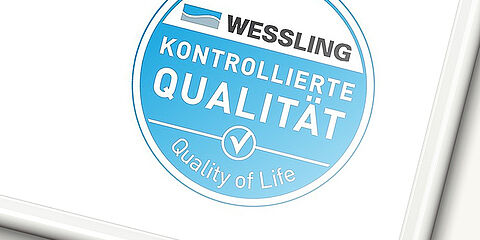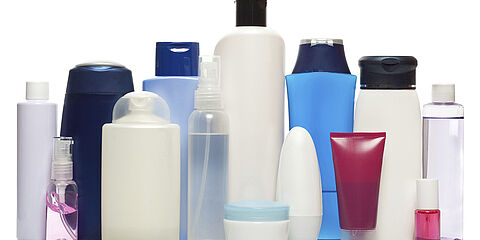Laboratory analysis for cosmetic products
Consistently high quality and safety guarantee the market success of cosmetic products. In addition, there are legal requirements for effectiveness, stability and consumer health protection. WESSLING supports manufacturers with laboratory analysis, expert opinions and process-accompanying consulting.
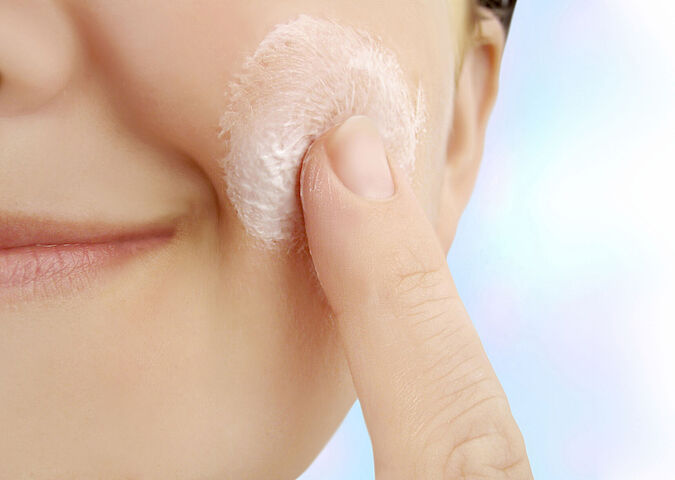
Our efficient, accredited* laboratories offer customers a versatile analytical spectrum for their cosmetic products. Together with the expertise of the WESSLING cosmetic experts, this forms a comprehensive service portfolio along the entire production chain of cosmetic products. It includes both recognised standard analytical methods and specific solutions according to individual customer specifications for chemical, chemical-physical and microbiological investigations.
Future topics such as the testing of nanomaterials, for example micelle analysis, are of course part of our cosmetics testing service portfolio. If required, we develop and validate methods for customers. Thanks to our in-house network of experts, we also analyse packaging materials (including those made from recycled materials) of cosmetic products with regard to the safety report in accordance with EU Cosmetics Regulation No. 1223/2009.
*Testing laboratory accredited by DAkkS according to DIN EN ISO/IEC 17025:2018. The accreditation only applies to the scope of accreditation listed in the certificate attachment [D-PL-14162-01-00].
Analysis for cosmetic products: services in detail
Analysis for cosmetic products: services in detail
Microbiological tests
Microbiological tests
Microbiological product safety is one of the most important factors in the safety assessment of cosmetic products. Our services include the analysis of cosmetc raw products, bulk goods and end products.
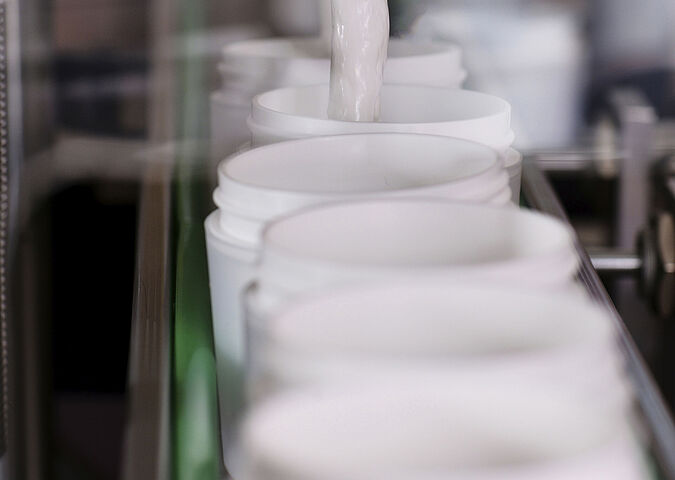
Our range of services
- Aerobic and anaerobic bacteria
- Yeasts and moulds
- Pathogenic microorganisms (Escherichia coli, Staphylococcus aureus, Pseudomonas aeruginosa, Candida albicans and other microorganisms)
- Identification of microorganisms
- Preservative challenge test – test for sufficient preservation (simple and repetitive inoculation)
- Endotoxin determinations
- Microbiological testing of process water or production water
- Microbiological raw material testing
- Swab samples and contact samples
Analysis for cosmetic products: services in detail
Chemical-physical analyses
Chemical-physical analyses
Chemical-physical tests enable manufacturers to verify their product specifications. The experts at WESSLING analyse ingredients and active ingredients of cosmetic products that must be declared.
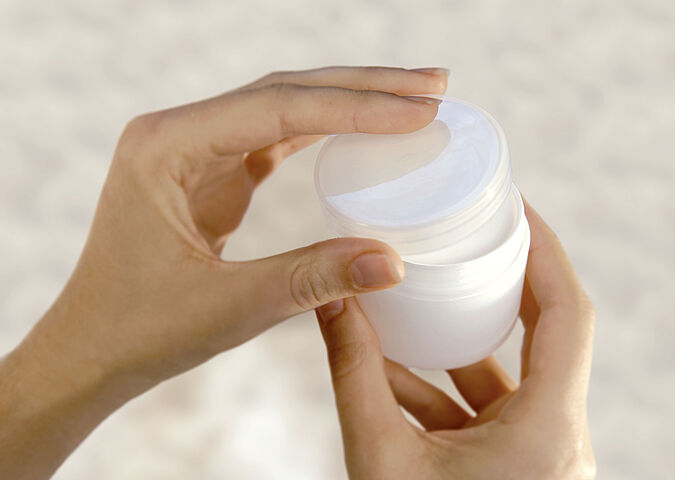
Our range of services:
- Allergenic fragrances (according to old and new EU regulation), Majantol
- Preservatives
- Formaldehyde
- Cosmetic active ingredients (e.g. allantonin, bisabolol, Q10, glycerine, hyaluronic acid, zinc oxide, titanium dioxide, UV filter substances such as benzophenone-3 (CAS-Nr. 131-57-7) and octocrylene (CAS-Nr. 6197-30-4))
- Vitamins (e.g. panthenol, tocopherol, retinol)
- Oxidation stability (Rancimat test)
- Fat parameters (acid value, peroxid value, etc.)
- Physical parameters such as density, pH-value, viscosity, water activity (aw) value, etc.
- Surfactants: qualitative and quantitative testing of different surfactant classes
- Ricinin
Analysis for cosmetic products: services in detail
Residues and contaminants
Residues and contaminants
Testing for contaminants and residues is an essential element in the assessment of cosmetic products and a central part of the safety report, which, according to Regulation (EC) No. 1223/2009, has to be compiled for every cosmetic product.
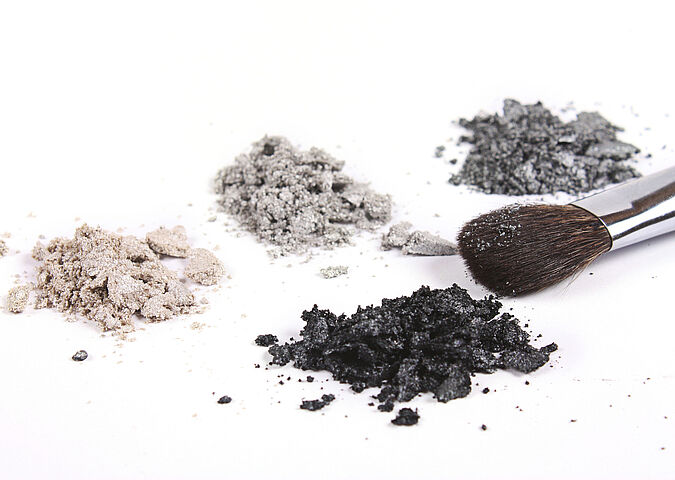
Our range of services:
- Phthalates
- Nitrosamines, e.g. NDELA
- Polycyclic aromatic hydrocarbons (PAH)
- Heavy metals: determination after pressure decomposition as well as determination after artificial sweat test Schweißsimulanz
- Chromium (VI)
- Pesticide residues
- Mineral oil residues: MOSH / POSH / MOAH
- Solvents, such as benzole, toluene, etc.
- Polycyclic musk and nitro-musk compounds
- Asbestos (in decorative cosmetics, talcum etc.)
- Organic halogen compounds
Analysis for cosmetic products: services in detail
Dermatological & clinical tests
Dermatological & clinical tests
Cosmetic products must be compatible with skin. If manufacturers also advertise certain active ingredients, features or functions for their products, they must be able to provide sufficient proof of this. This is what is prescribed in the Cosmetics Regulation VO (EG) 1223/2009 in conjunction with VO (EU) 655/2013.
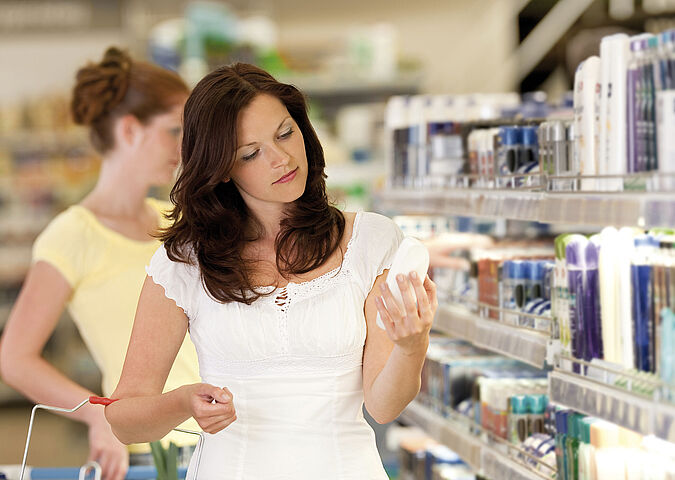
Our range of services:
- Skin compatibility test (epicutaneous test) for normal and sensitive skin (after tape stripping).
- Eye compatibility testing (ophthalmological tests)
- Determination of the sun protection factor: screening and SPF determinations (also UV-C radiation)
- Water resistance of cosmetic products
- Efficacy tests: skin hydration, wrinkle depth, etc.
- Claim support based on user tests using questionnaires
- Moisture measurement using the TEWL test to determine transepidermal water loss
- Skin roughness, wrinkle depth, skin hydration
- Sniff test (smell test)
- Efficacy studies: studies to test efficacy and claim support
Analysis for cosmetic products: services in detail
Analysis of cosmetic product packaging
Analysis of cosmetic product packaging
Regulation (EC) 1223/2009 explicitly stipulates that the packaging must be taken into consideration in the compilation of the safety report. Packaging primarily serves to protect the cosmetic product.
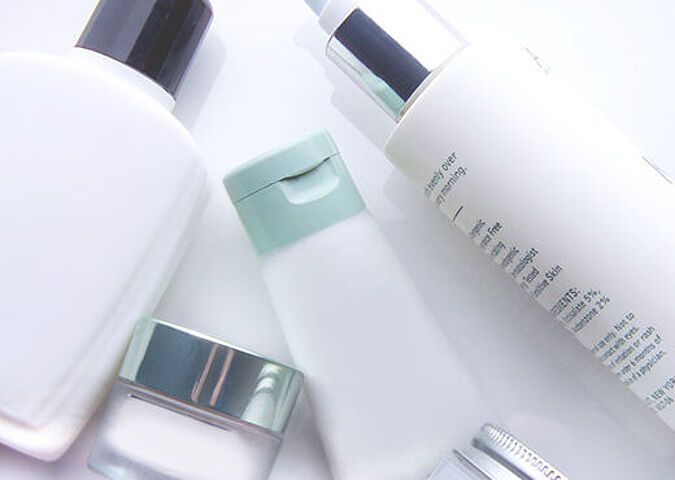
Our range of services:
- Overall migration
- Specific migration, e.g. for formaldehyde, bisphenol A, phthalates, heavy metals, BHT, special plastic additives
- Testing regarding olfactory/optical spoiling of the cosmetic product due to the packaging (sensory testing)
- Material testing for potential contaminants in the packaging, e.g. phthalates
- Bisphenol A
- Nonylphenols and nonylphenolethoxylates
- Polyzyclic aromatic hydrocarbons (PAH)
- Heavy metals such as arsenic, lead, cadmium, antimony, nickel, mercury, etc.
- Plastic identification by way of infrared spectroscopy
- Testing of wooden packaging for formaldehyde, wood preservatives, etc.
- Comprehensive other specialised tests upon request
Analysis for cosmetic products: services in detail
Analysis on nanomaterials
Analysis on nanomaterials
Micelles as active ingredient or carrier systems as well as titanium dioxide or zinc oxide as UV filters are now well-known examples of the use of nanomaterials in cosmetic products.
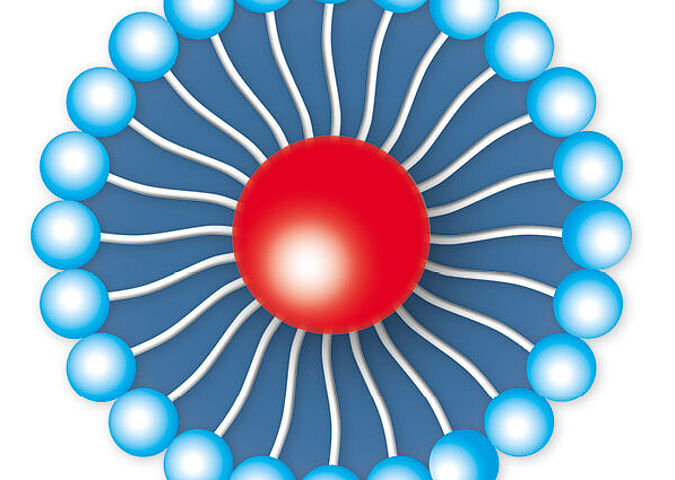
Our range of services:
- Quality analysis of raw materials on a nano and micrometer scale
- Verification of the declaration obligation
- Testing of micelle-containing emulsions using cryo-scanning electron microscopy
- Testing of size distribution and homogeneity by means of dynamic and static light scattering
- Determination of critical micelle formation concentration (CMC)
Your contact regarding laboratory analysis for cosmetic products
- Marc von Essen
- +49 2505 89-633
- cosmetics@wessling.de

„Our customers know: at WESSLING they can access services on a modular basis or along the entire production chain, according to their needs. From raw materials to packaging - we make cosmetic products market-ready.“
WESSLING: Consulting and expert opinions on cosmetic products
In addition to laboratory analysis, expert services are a central part of our work. The competent advice of the cosmetics experts at WESSLING provide our customers with confidence and reassurance. Our experts are happy to provide you with their experience on labelling or conformity testing, safety assessment and notification as well as marketability certificates. You would like to launch a cosmetic product? Here too, WESSLING is your competent partner.
